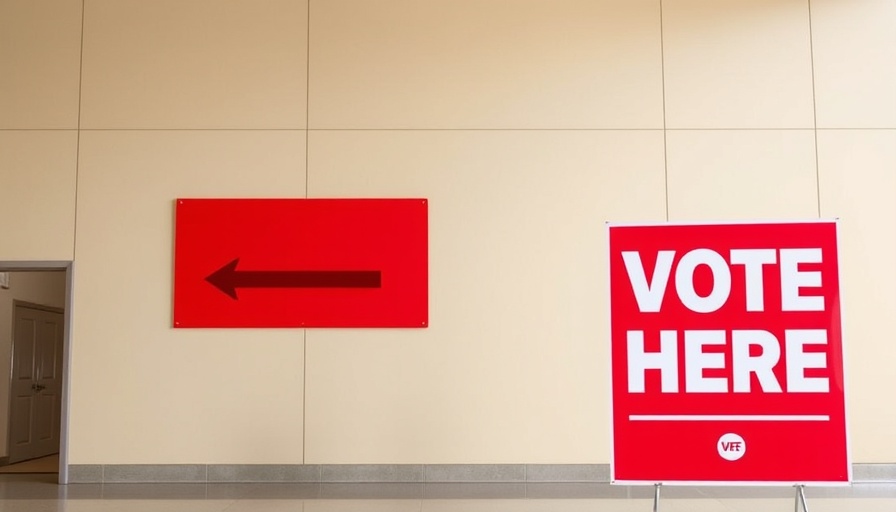
The Legal Maze Surrounding Frank White's Recall Election
As the political landscape of Kansas City evolves, the potential recall election of Jackson County Executive Frank White could face delays stemming from legal actions. Recent statements from the county council suggest that a push for a postponement is not off the table, raising questions about the implications for local governance and community engagement. Understanding the ramifications of such a move is crucial for residents who are keenly paying attention to the unfolding events.
In Frank White recall election could be delayed, significant discussions unfold around the implications of delays on the voting process and community engagement.
Why the Call for Delay?
The Jackson County election board has indicated a preference for scheduling the recall election on November 4 instead of the initially proposed August 26 date. This choice reflects concerns about operational readiness and ensures the election board has ample time to prepare, given the legal and procedural complexities involved. The timeline is now a focal point of contention, with some council members expressing doubts about the feasibility of executing a fair election within the original timeframe.
A Community Divided: Voices and Perspectives
The debate surrounding Frank White's potential recall is not merely a legal affair; it resonates with the fabric of the Kansas City communities. Many constituents express diverging views—while some support the recall due to political disagreements, others argue for stability amid ongoing challenges. This situation illustrates a broader trend of civic engagement, as local residents become more involved in their governance. The recent unanimous vote to move forward with the recall ordinance highlights a significant moment in which the community is stepping up to make its voice heard.
What’s at Stake? The Implications of a Delay
Delays in the recall election could have substantive implications for the region. The postponed election could affect key local initiatives and funding decisions vital to the community. It raises the question: what happens to ongoing projects that require executive support? The accountability of elected officials is pivotal in maintaining public trust, and any perceived obstruction to the electoral process may lead to further discontent in a politically active populace.
Legal Challenges and Political Authority
As discussions of veto power and governance come to the forefront, the question of whether Frank White's decisions represent a conflict of interest invites scrutiny. Critics argue that allowing those in power to veto legislative decisions directly tied to their roles creates ethical dilemmas. On the other hand, supporters emphasize that the existing policies provide robust checks and balances that reflect the authority vested in the county executive's office.
Engagement as a Catalyst for Change
The current situation surrounding Frank White’s recall election underscores a significant aspect of local government: community involvement. Citizens are encouraged to engage through forums, public meetings, and discussions, which shape local narratives. Participating in these conversations helps ensure that the elected officials remain accountable and responsive to their constituents' needs. For those living in Kansas City or contemplating a move there, understanding these civic dynamics is imperative to navigating the nuances of local governance.
What Comes Next? Future Predictions for Kansas City's Political Scene
As we look to the future of Kansas City’s political landscape, the outcome of Frank White's recall and any ensuing legal challenges will undoubtedly set precedents. If the election does proceed without delay, it could inspire a wave of civic engagement, possibly prompting other local leaders to reconsider their positions and policies. Alternatively, if the election is delayed indefinitely, it may prompt greater frustration within the community, highlighting the urgency of electoral accountability.
Community Empowerment Through Knowledge
The dialogue surrounding the recall election of Frank White serves as a reminder of the power wielded by local communities. Residents must remain informed and advocate for their right to vote. Engaging with local media, attending council meetings, and discussing these issues with peers can illuminate pathways for collective action. As Kansas City evolves, embracing the neighborhood spirit fosters resilience and innovation within these vibrant communities.
Ultimately, understanding the layers of these political processes and aligning them with local interests creates opportunities for engaged living in Kansas City. Whether you’re already part of the urban neighborhood or looking to join the Kansas City local living scene, staying engaged with these developments will enhance your role in shaping the community you cherish.
 Add Row
Add Row  Add
Add 





Write A Comment